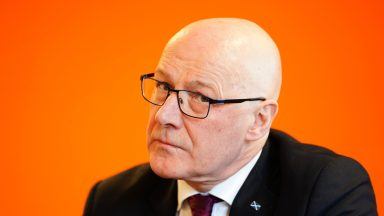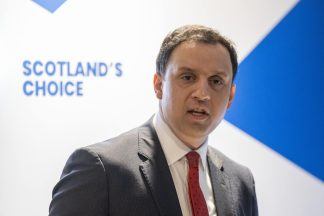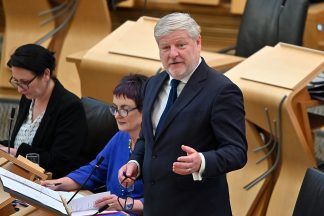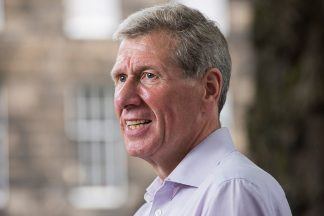The Scottish Government may still miss its interim targets for reducing child poverty, a group that advises ministers has warned, despite Nicola Sturgeon announcing the doubling of the flagship payment aimed at helping poorer children.
The First Minister told the SNP conference that the Scottish Child Payment was to be increased from £10 a week to £20 a week from April 2022.
While she said tough choices would have to be made in next week’s Scottish Budget to pay for this, she insisted the move was “without doubt the boldest and most ambitious anti-poverty measure anywhere in the UK”.
Currently, the parents of about 105,000 youngsters under the age of six receive the payment, which has been brought in by the Scottish Government, but it will be rolled out to all children under the age of 16 in poorer families by the end of next year.
The Scottish Government has estimated that almost one in four (24%) youngsters are living in relative poverty – with 240,000 children affected.
But legislation passed by Holyrood sets out that by 2030-31, less than 20% should be living in relative poverty – and that by 2023-24 the proportion should be reduced to 18%.
Bill Scott, chair of the Poverty and Inequality Commission, said modelling and data suggested the Scottish Government “may still miss” that interim target, despite the increase to the Scottish Child Payment.
He said if the UK Government had not ended the £20 a week uplift to Universal Credit it introduced at the start of the Covid pandemic, effectively reducing household incomes by £1,000 a year, “we might have just about made it”.
Speaking to the PA Scotland news agency, Mr Scott said: “It is unfortunate they are going to just miss the interim target, the Commission believes that, so we do need to see investment in other areas, not just social security.”
He insisted there was the “political will to see this through in Scotland” highlighting not just the increase in the Scottish Child Payment but the Government’s doubling of free childcare for three and four-year-olds, and the expansion of free school meals.
Mr Scott added that it would have been better if the uplift to Universal Credit had stayed in place, saying that would have meant “those families would have got a real bump upwards to their income”, rather than having the increase in the Child Payment “just making up the loss”.
And while he said he did not believe the increase to the Scottish Child Payment could be brought in any earlier than April 2022, he warned that many families are “going to face a harsh winter” with fuel bills rising and inflation also leading to higher prices in the shops.
He stressed that the Commission, which was set up in 2019 to advise ministers on tackling poverty and inequality, believed there needed to be more urgency in tackling the problem.
Mr Scott said: “We need to move more quickly, otherwise we will miss the target in 2030 which is the really important one.”
And he argued that tackling poverty must be given the same importance as issues such as dealing with climate change.
“Tackling poverty has to be up there with addressing climate change,” he insisted.
“That’s what is needed to concentrate minds about what we need to do.”
Follow STV News on WhatsApp
Scan the QR code on your mobile device for all the latest news from around the country


 PA Media
PA Media

























